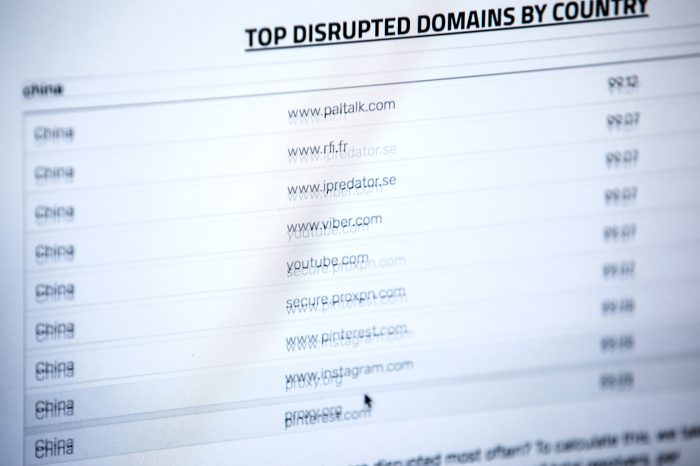
In an advance that could one day provide a comprehensive, publicly available window into worldwide internet censorship, a team of researchers at U-M has turned public internet servers across the globe into automated sentries that can monitor and report when access to websites is being blocked.
Censored Planet, a first-of-its-kind system, has begun collecting data on three different types of internet censorship tactics commonly used by governments and others. Roya Ensafi, a research assistant professor of computer science and engineering and project leader, says it’s a major step forward for online transparency and accountability.
“Currently, censorship researchers must rely on anecdotal information collected from a handful of human volunteers working inside countries where censorship is happening,” she said. “Censored Planet, on the other hand, could have hundreds of electronic vantage points in a given country. It’s more ethical, safer, and because it reports consistently, it could provide the first comprehensive picture of how censorship evolves over time.”
